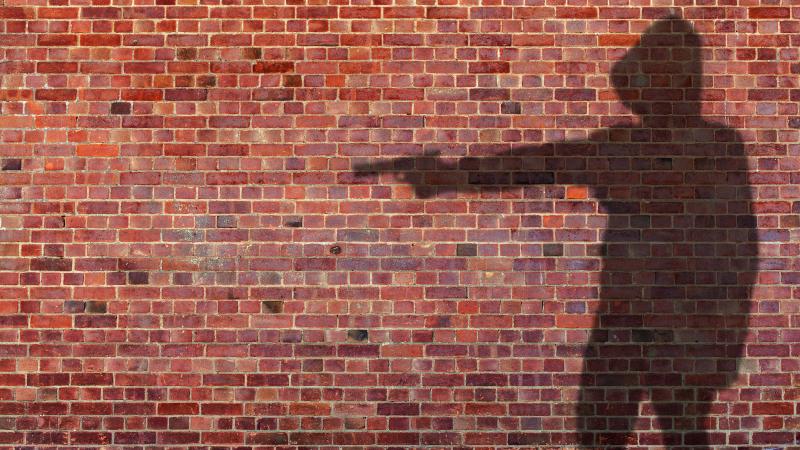Trump’s national security team signals tougher approach to China, shifting focus from distractions
Those close to Trump describe Biden's foreign policy as being held hostage to the Russia-Ukraine War and a waffling position on Israel’s fight for survival. It all adds up to a boon for China.
President-elect Donald Trump is shaping a national security team that is more hawkish on China than his first administration.
Three of the candidates for pivotal security roles, Sen. Marco Rubio, Gov. Kristi Noem, and Rep. Mike Waltz, have long records of tough-on-China policies from the federal and state level and are likely to support the president-elect in implementing policies that treat China as America’s primary economic and geopolitical rival.
Those close to Trump perceive the Biden-era foreign policy as handcuffed by responding to the Russia-Ukraine War and Israel’s fight against neighboring terror groups as a boon for China, which is the United States’ only true peer competitor.
This view was outlined by Trump’s choice for National Security Advisor, Rep. Michael Waltz, R-Fla., who wrote an article in The Economist alongside former Pentagon official Matthew Kroenig that labeled China as America’s “greatest rival,” warning that the United States needed to rebuild its armed forces restore deterrence in the Pacific.
“The next president should act urgently to bring the conflicts in Ukraine and the Middle East to a swift conclusion, and finally focus strategic attention where it should be: countering the greater threat from the Chinese Communist Party,” Waltz and Kroenig wrote.
In it, Waltz argued that the United States should move to end the conflicts currently raging in Ukraine and the Middle East in order to refocus efforts on countering China, specifically rebuilding the U.S. military in order to deter an attack against Taiwan. “A new administration should increase defence spending and revitalise the defence-industrial base to make sure its armed forces are clearly capable of denying a Chinese attack on Taiwan,” Waltz and Kroenig wrote.
"Heinous Acts" and unchecked espionage
As a representative, Waltz called for a boycott of the 2020 Beijing Olympics, citing human rights abuses by the Chinese Communist Party.
“The Chinese Communist Party has carried out a number of heinous acts in the last year alone that should disqualify them from hosting the 2022 Winter Olympics,” Waltz, according to a press release. “The world cannot legitimize the CCP’s acts of genocide in Xinjiang, destruction of the democratic rights of Hong Kong, and dangerous suppression of the coronavirus outbreak in Wuhan that cost lives by sending delegations to Beijing.”
Waltz has also advocated for shifting the United States’ defense posture to the Pacific in order to more directly confront China. The CCP has been accused of operating secret police stations in the U.S., to monitor or even harass Chinese citizens that the government deems "dissidents" according to The Daily Caller.
Over the years, the CCP has successfully inserted alleged espionage operatives into the offices and private lives of Democratic party politicians. A former deputy chief of staff to Gov. Kathy Hochul, D-N.Y., has been charged for acting as an unregistered agent for China, reported The Washington Times. The late Sen. Dianne Feinstein, D- Calif., a cherished figure in Democratic politics, employed a Chinese spy who stayed by her side for nearly 20 years, reported CBS News.
"Shift to the Pacific"
“We have to shift to the Pacific,” Waltz told The Financial Times. He called China’s “most rapid military build-up since the 1930s” a “dire” situation.
Joining a more hawkish National Security Advisor, Trump nominated Senator Marco Rubio of Florida to helm the State Department under a second Trump administration. Rubio, the child of immigrants who fled Cuba in 1956, has long represented a constituency with strong anti-communist sentiments.
As Secretary Rubio will have a pivotal role in the cabinet that shapes U.S. policy towards China, and has been one of Beijing’s chief critics in the Senate. Rubio has been a clear voice in the Republican Party during the Biden administration on the threat the Chinese Communist Party poses to the United States. He has specifically warned of its threat to the American economy, which mirrors Trump’s own beliefs and campaign promises.
If confirmed, Rubio will still be under active sanctions from the Chinese government for his legislation targeting human rights abuses by the communist government in the Xinjiang province.
“The gravest threat facing America today, the challenge that will define this century and every generation represented here, is not climate change, the pandemic, or the Left’s version of social justice. The threat that will define this century is China,” Rubio said in a speech to the Heritage Foundation one year into Joe Biden’s term. “And we will need a whole-of-society — not just government — effort to match them.”
Rubio has consistently warned that China’s economic might, including its vice grip on critical supply chains, is among the most pressing challenges facing a future administration.
A nuclear arsenal, supply chains control and global market power
“[In] Beijing we are faced with an adversary that has a nuclear arsenal, but also control of critical supply chains, and an influence over global markets not even the old Soviet Union had,” Rubio said.
In the intervening years of the Biden administration, Rubio became a leader in warning of Beijing’s economic influence and U.S. vulnerability. He pushed several pieces of legislation targeting China, including a bill that would prevent China from evading U.S. tariffs by opening manufacturing locations in third countries, championing the Stop CCP act that would sanction senior party officials complicit in human rights abuses, and a bill that would have prevented Inflation Reduction Act subsidies from being given to foreign companies, including from China.
Rubio’s efforts closely align with President-elect Trump's promised economic crackdown on Beijing which includes a 60% flat tariff to limit dependence and restore American manufacturing and a proposal to revoke a special trade status granted by the United States after China joined the World Trade Organization.
Trump’s previous term marked a shift in U.S. policy towards China, departing from the old Washington consensus that hoped increased trade with China and mutual cooperation would bring it into the world order and limit its aggression.
The Trump 2017 National Security Strategy turned that conventional wisdom on its head, accusing China of seeking “displace the U.S. in the Indo-Pacific region, expand the reach of its state-driven economic model and reorder the region in its favor.” The shift angered Beijing.
Protecting the U.S. food supply
Trump nominated South Dakota Governor Kristi Noem to head the Homeland Security Department, an important agency that will not only be responsible for implementing immigration policy but also with helping to secure the homeland against foreign threats, especially from China.
Despite having little experience in foreign policy, the Midwest governor shepherded a law earlier this year to ban a total of six “evil” governments, including China, from purchasing agricultural land in South Dakota.
“South Dakota respects the freedom to farm and ranch. That Freedom should not extend to our enemies,” Noem said. “Over the past year, we have had continuous discussions to create this legislation to protect South Dakota from foreign adversaries buying up our ag land.”
The governor cited the importance of protecting the U.S. food supply from dependence on foreign adversaries, especially China. The move came amid reports that China-connected companies have increased ownership of land 30% between 2019 and 2023. Lawmakers have also raised concerns about Chinese companies’ ability to purchase agricultural or other lands near U.S. military installations.
Trump’s nominee for Defense Secretary, highly decorated veteran and later Fox News host Pete Hegseth, has also expressed concerns that the United States is militarily lagging behind China, signaling that he may champion a military buildup to counter the communist country if he is confirmed to the role.
On television, Hegseth has also warned about China’s plans to “supplant” the United States economically and culturally and criticized President Biden for not doing enough about it.
“China’s building an army specifically dedicated to defeating the United States of America,” Hegseth said while promoting his book. He said that the U.S. is “always a decade behind and fighting the last war.”
The Facts Inside Our Reporter's Notebook
Links
- wrote an article
- former Pentagon official Matthew Kroenig
- according to a press release
- to monitor or even harass Chinese citizens
- reported The Washington Times
- told The Financial Times
- reported CBS News
- targeting human rights abuses by the communist government
- a speech to the Heritage Foundation
- prevent China from evading U.S. tariffs
- the Stop CCP act
- subsidies from being given to foreign companies
- President-elect Trump's promised economic crackdown
- Trump 2017 National Security Strategy
- angered Beijing
- ability to purchase agricultural or other lands
- expressed concerns
- warned about China’s plans














